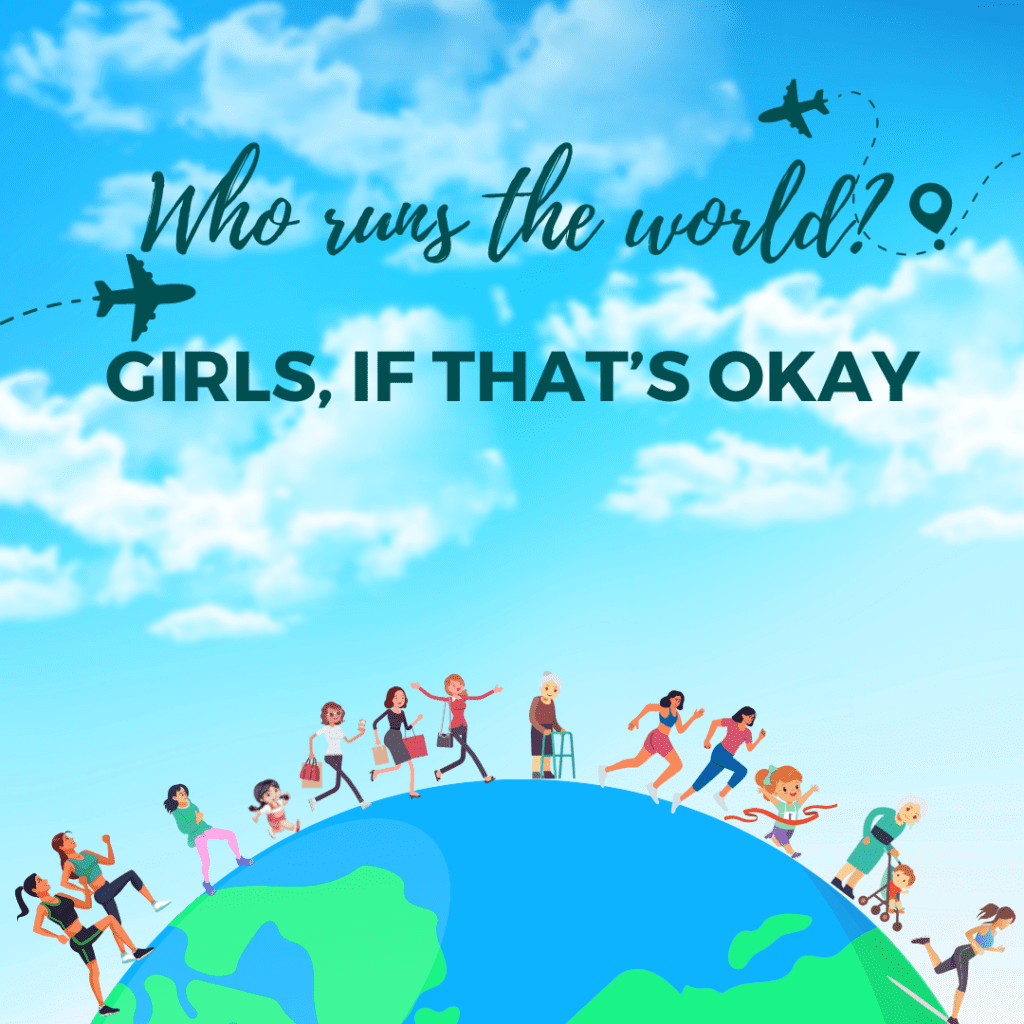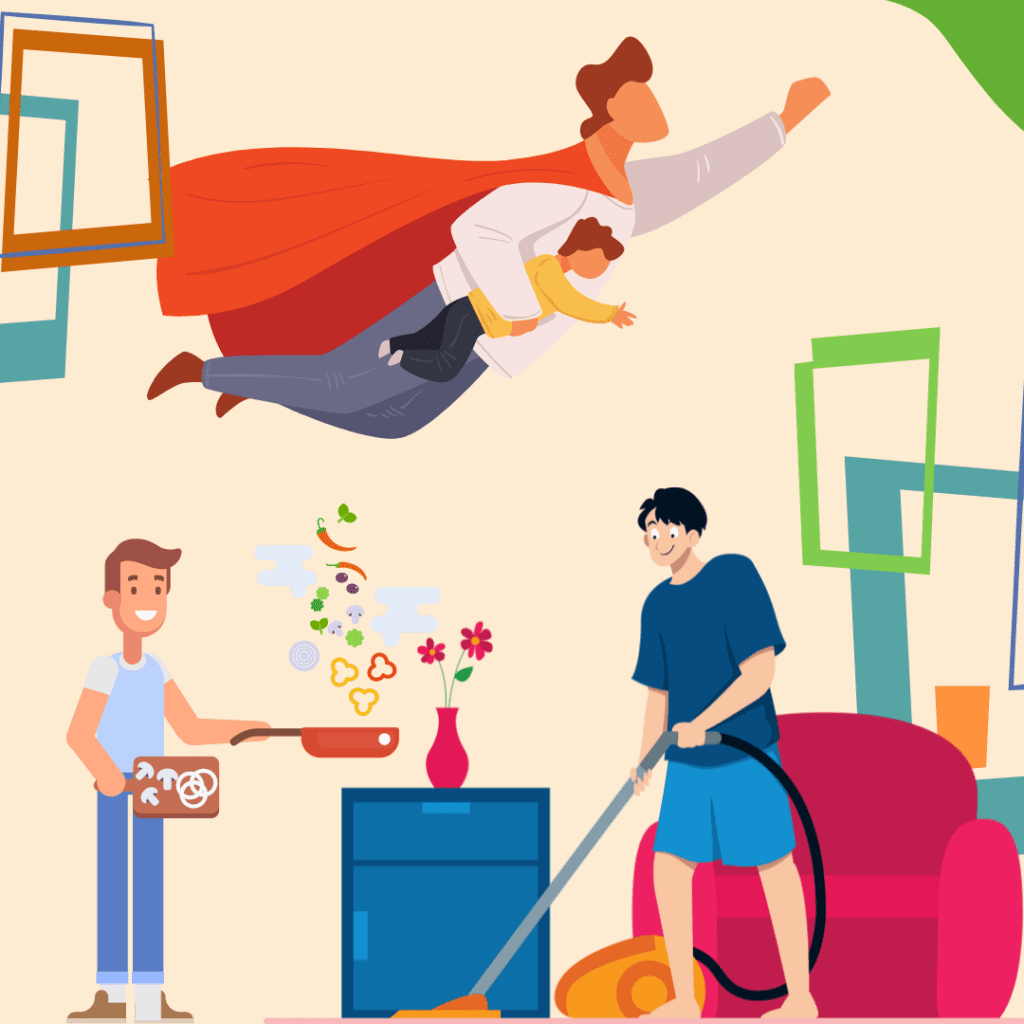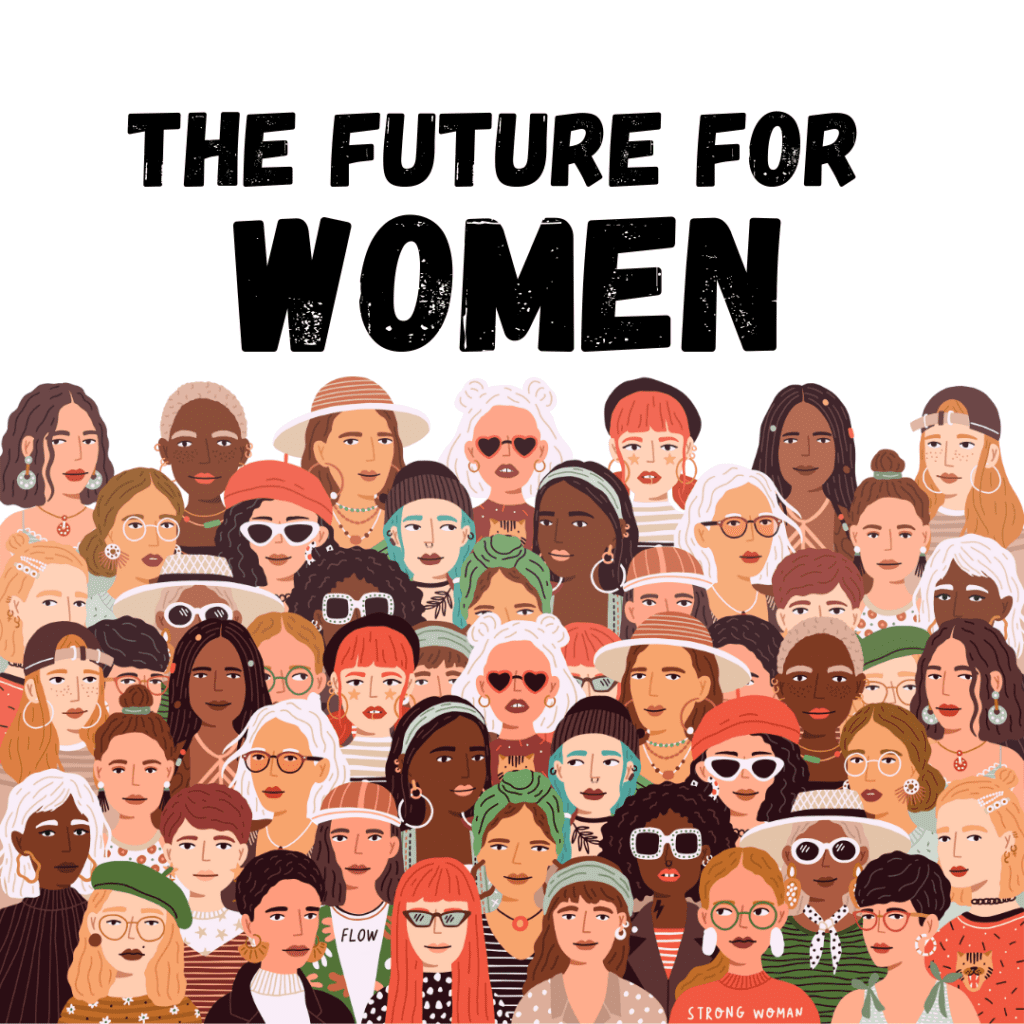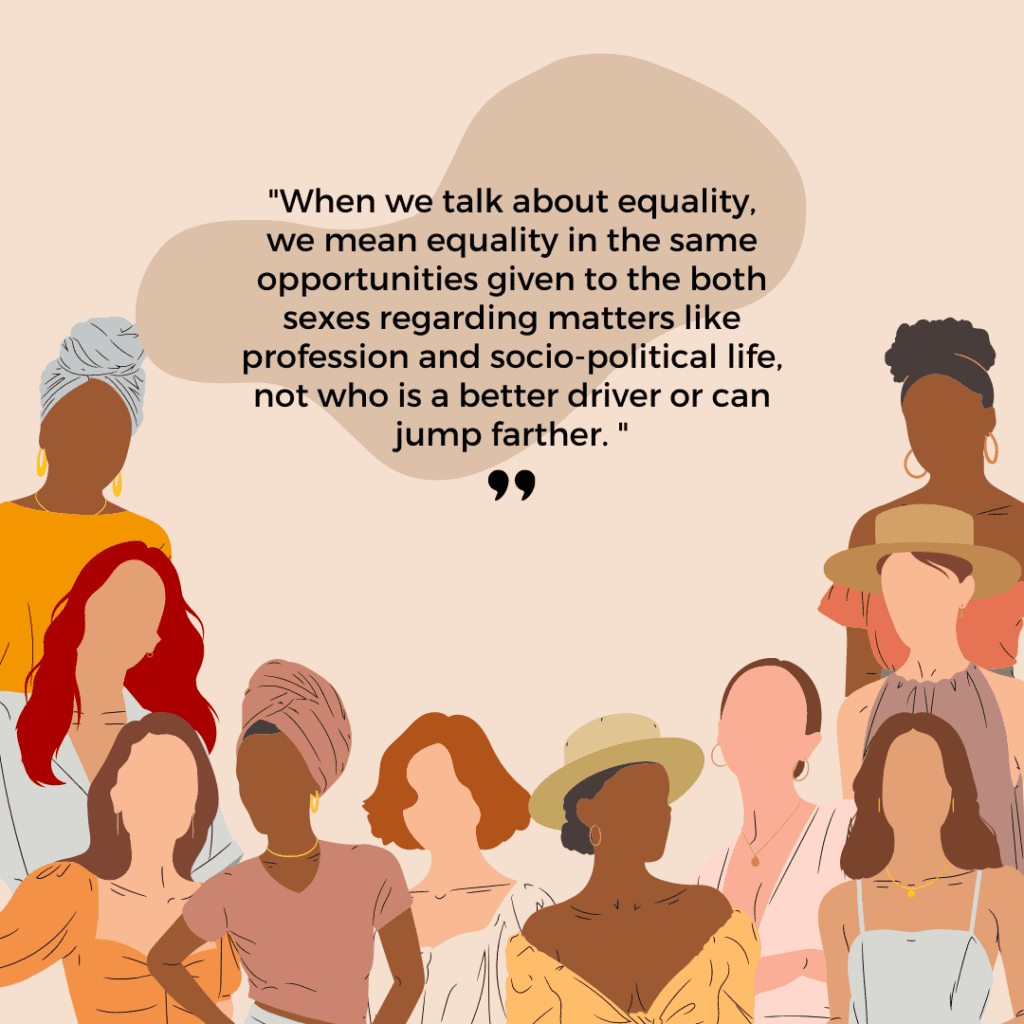Who runs the world? Girls, if that’s okay!

Who runs the world? Girls, if that’s okay!
Let’s not kid ourselves – even though we’re well into the 21st century, the position of women anywhere is far from ideal. And women being women, even if the desired ideal was ever reached, we would still find a flaw or two in the system.
I guess it’s true that we do tend to find a flaw in everything. The reason might lie in our evolutionary ancestry from the early cavewomen. Once upon a Stone Age time, we were gatherers and babysitters, always on alert for a hungry beast lurking about our cave. Our keen eyes are more observant of things and happenings around us than men – sorry, guys, this is a scientific fact. Thus, we are a bit more preoccupied with details. That’s why we spend 20 minutes, at least, choosing a shampoo or facial cream, and let’s not even mention the process of coming to a decision to cut hair.
If science says we are more observant and more empathic, our brains work differently, and we might be easier on the eyes (when the right shampoo, facial cream, and hairstyle are selected, of course), why are we overlooked in society?
Who runs the world? Girls, if that’s okay
Serbia is not a third-world country. (Yet.) Different rules apply to the Serbian social and economic system and values. Different rules for men and, most certainly, different ones for women.
Serbia is neither ancient Rome where women’s lives were decided by their fathers, husbands, and brothers. In the 21st century, the lives of women are decided by groups of strange men in a strange place called the parliament.
The statistics show that men are outnumbered by women, yet women are more educated and earn 8.8% less. Women make up the majority in lower-paid professions such as healthcare, education and social protection, and they occupy only a third of management positions.
This comes as no surprise, as men are notoriously bad at taking orders from women. Just think about all the times you’ve asked your husband to do the dishes or vacuum.
It seems to be hard for men to accept women in positions of power – the reason for that might lie in the hardcore evolutionary genetics – and the best example in Serbia is found in the language. In English, a nurse refers to a person, male or female, who is a licensed healthcare professional. In Serbian language, however, nurse translates literally to ‘medical sister’ (medicinska sestra), to point out the fact that not so long ago only women could assume the roles of nurses.
Male nurses are referred to as ‘medical technicians’ (medicinski tehničar), and even that title applies that men are far more capable than their female colleagues.
Have your cake and eat it too

Most men in Serbia believe that women should put families first and that those that choose careers over family life are selfish. Serbian society, as reflected in the larger part of the globe, is still susceptible to the detrimental thinking that women have to choose one or the other, while for men it’s a given that they are the bread-winners and also husbands and fathers.
Men are expected to put careers first and make enough to support those women who put families first. Who then marries women with blooming careers or would like to have their cakes and eat them, too?
The chances are a woman bought the ingredients, baked and decorated that cake herself, so she’d better have at least one piece of it.
Gender equality implies that women and men have equal opportunities, rights, and obligations in their social, professional, and family environment. Serbia is a signatory to several important and binding international documents that guarantee the equality of men and women and prohibit discrimination based on gender.
In theory.
It’s never a good idea to expect to share opportunities, rights, and obligations with your male partners. It’s their right to grab a drink or five after work, while the woman is expected to go home, cook something, clean something, and look after the kids.
May I just add that looking after kids have its own innate categories of obligations that again include cooking, cleaning, bathing, hair brushing, nails clipping, reading before bed, and joining an occasional tea party.
Statistics also show that men start working at an earlier age than women. Most guys I know in my hometown have started waiting tables and working at construction right after high school. Women are more successful in universities – 57% of enrolled students and 59% of graduates are female. In 2019, 57% of women received their doctorates, but as many as 90% of the members of the Serbian Academy of Sciences (SANU) in 2020 were men.
Does that mean Serbian women are smarter and more educated, but most of the seats in academic institutions are reserved for men?
The future for women

Listen, these are the facts: men and women can never be equal.
Women are less likely to bench press 260lbs than men do. Men cannot give birth. Yet these are some distinctions that should come naturally. When we talk about equality, we mean equality in the same opportunities given to both sexes regarding matters like profession and socio-political life, not who is a better driver or can jump farther.
Women in Serbia have only recently been emancipated in the sense that divorce was no longer considered a flaw on their resume. We have lived side by side with generations of grandparents who wouldn’t break off their sacred marriage vows so as not to leave a stain on their family names.
My maternal grandmother married a latent alcoholic whose condition only got worse as family tragedies unraveled. She spent most of her adult life, after being married off at 19, deeply unhappy, but leaving my grandfather was never an option. Her daughter, my mother, would file for divorce some forty years later as living in an unhappy marriage seemed far less tolerable than being the black sheep of the family, the first ever in line to be separated legally from her husband.
In the day and age when plenty of opportunities are offered to women, the question of the right ones is still a difficult conversation. And in the state of the country in which our very own president accuses women of choosing motherhood just so they could enjoy maternity leave and avoid work, when in fact Serbia is facing the lowest birth rate in the past decade, the conversation about what our society could do for women is more important than ever.
Officially, women in Serbia have the same rights as men. In real life, the line between officially and hypothetically is often blurred.

As I mentioned before, you can find more women in education and healthcare, but also food industry and cleaning businesses. It’s a well-known fact that women are good at cooking and cleaning. That’s what they’ve been preparing us for our whole lives, and if we are bad at it, or simply refuse to do any house chores, our questionable upbringing would be frowned upon.
Yet, when you google the top 16 chefs with the most Michelin stars, there is one lonely female name in the midst of the masculine names and contributions to the culinary world. By the means of healthy deduction skills, we could conclude that the best cooks in the world are men. Is it because women stay at home and cook for their families and have no time to chase Michelin stars and open fancy, overpriced restaurants?
Whatever the future holds for women in Serbia and in the Balkans, it is certain that the road is long and bumpy. It took us only 77 years to be given the right to vote. Who knows what we might do in the 77 years to come?
Truly yours,
Vanja
